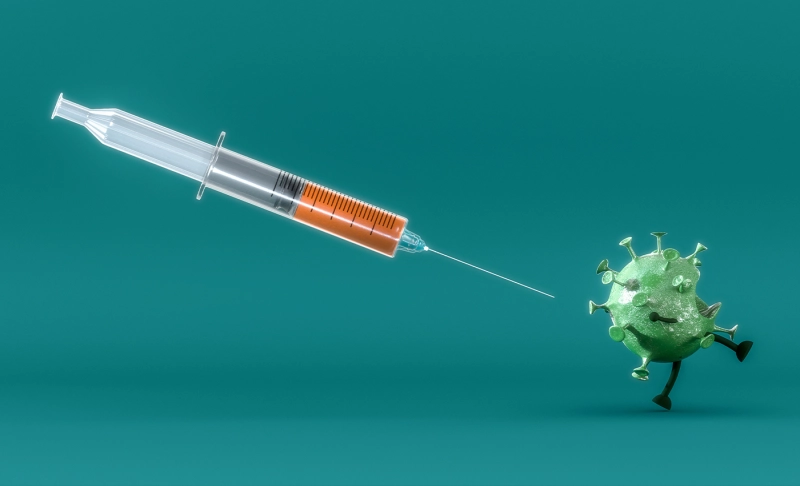By: Sunil Kumar
August 18 2021

Virus mutations occur regardless of vaccination. Vaccines play a significant role in suppressing virus variants.
Virus mutations occur regardless of vaccination. Vaccines play a significant role in suppressing virus variants. Virologist Luc Montagnier is known for promoting conspiracy theories regarding COVID-19. Some articles have claimed that Montagnier claimed that the coronavirus does not die after coming in contact with vaccines but instead creates more virus variants. This claim is baseless. While Montagnier has made statements that have been criticized by the medical community, there is no evidence that he made these specific remarks. According to Stuart Ray, M.D., vice chair of medicine for data integrity and analytics at Johns Hopkins Medicine, the virus becomes a variant when its genes alter, or mutation occurs. RNA viruses, such as the coronavirus, tend to evolve and change over time. Geographic separation produces genetically different variations. Further, Robert Bollinger, M.D., M.P.H., Raj, and Kamla Gupta, professor of infectious diseases, explain that all RNA viruses modify over time, but some change more than others. Flu viruses, for example, are constantly changing, which is why doctors recommend getting a new flu vaccine every year. Healthline reported that Peter Stoilov, Ph.D., an associate professor of biochemistry in West Virginia, said, "Mutations and variants occur randomly and independently of vaccination or any other selection process." He added, "The facts that Dr. Montagnier ignores are that, while vaccination may select for some variants, it is still effective at suppressing them." According to World Health Organisation, the risk of a virus changing increases when it is widely circulating in a community and generating many illnesses. The more chances a virus has to spread, the more it replicates, and the more changes it can make. Because the COVID-19 vaccines stimulate a comprehensive immune response, including various antibodies and cells, they protect against novel viral types. Therefore, changes or mutations in the virus should not make vaccines completely ineffective. According to the Centers for Disease Control and Prevention (CDC), all the COVID-19 vaccines approved for emergency use reduce the risk of the virus and its complications. These vaccines have proven to be effective against COVID-19 in clinical trial settings, and the studies that have looked at how COVID-19 vaccines work in real-world conditions have shown that these vaccines are working well. There is no scientific evidence that vaccines create new variants. The vaccine appears to stop viral illnesses from spreading and preventing people from contracting them. The virus will not be able to evolve if it is unable to propagate. The COVID-19 pandemic has given rise to a lot of potentially dangerous misinformation. For reliable advice on COVID-19, including symptoms, prevention, and available treatment, please refer to the World Health Organization or your national healthcare authority.